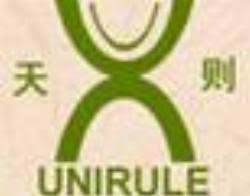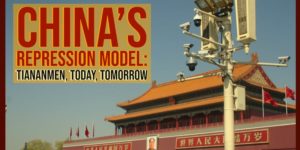 An independent Chinese think tank that has served as a rare bastion for liberal economic thought will shut down, citing government pressure as President Xi Jinping ’s campaign to silence dissent rolls on, The Wall Street Journal reports:
An independent Chinese think tank that has served as a rare bastion for liberal economic thought will shut down, citing government pressure as President Xi Jinping ’s campaign to silence dissent rolls on, The Wall Street Journal reports:
The Beijing-based Unirule was founded in 1993 to promote economic liberalization and democracy in China, riding on former leader Deng Xiaoping ’s push for market-style reforms after the deadly crackdown on the Tiananmen pro-democracy protests in 1989. Its work has frequently collided with Communist Party orthodoxy—clashes that have become more acute since Mr. Xi assumed leadership and pursued an increasingly authoritarian agenda…The Unirule Institute, whose name refers to a Chinese concept of “universal rules” over mankind, was created by a group of scholars as a platform for pro-market ideas, including the dismantling of China’s state sector, greater private property rights and the rule of law.
Unirule’s closure limits further the already small window for open discussion of alternative paths for China’s economy, precisely at a moment when it is much needed, said William Kirby, a professor of China studies at Harvard University. “At the moment, zealous officials can seemingly do no wrong by taking extreme measures to clamp down on debate,” he said.
![]() Beijing certainly needs consideration of alternatives amid questions over the sustainability of the current China Model, argues Geoffrey Yu, Head of UK Investment Office at UBS Wealth Management
Beijing certainly needs consideration of alternatives amid questions over the sustainability of the current China Model, argues Geoffrey Yu, Head of UK Investment Office at UBS Wealth Management

National Endowment for Democracy
China’s economic rise since its opening up in 1978 has created jobs and wealth, while the rest of the world enjoyed a wider choice of products and services at lower prices. Yet, all good things must come to an end. As the People’s Republic reaches its 70th birthday, it is no longer seen as a benign force. Challenges to China’s economic model are increasing, as witnessed by the trade and technology disputes between the Beijing and Washington, he writes for Chatham House, the London-based foreign policy think-tank:
What receives less coverage in the western press is how powerful forces unleashed by China’s economic growth are disrupting its domestic economy. To present and future Chinese leaders, managing economic change while maintaining social stability is much more important than figuring out how to respond to the social media rumblings of a sitting US president. For an economy as much as an individual, too much of a good thing can be detrimental. In the run-up to the global financial crisis, China’s economy, and more importantly, Chinese jobs, depended on exports.







